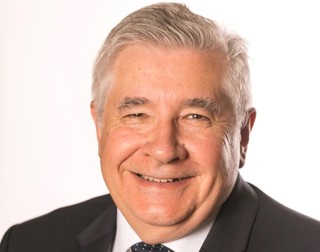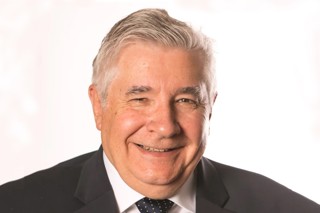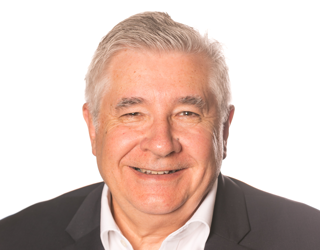In God we Trust’ became the motto of the United States in 1956 and, for many, God remains the only entity in which they are prepared to put their trust. Looking back over 2016, one of the casualties of both the US election and Brexit was any sense of ‘truth’ or belief in what was being said through the media.

Professor Jim Saker is
director of the Centre for
Automotive Management
at Loughborough
University’s Business
School and an
AM Awards judge.
He has been involved
in the automotive
industry for more
than 20 years.
Statements that were blatantly incorrect were bandied about by both sides in a rhetoric that appeared to be a race to the bottom when it came to integrity. It brought out the baser instincts in people and has, in my opinion, lowered the standing of many in what was previously called ‘high office’. So what has this somewhat pious ranting got to do with our industry?
Obviously, there have been a number of ‘unfortunate’ incidents where manufacturers have published incorrect information or have, in the case of ‘dieselgate’, manipulated the data produced that went on to falsify the message being given out to both governments and consumers. So we are not entirely clean in this particular area ourselves.
The problem is that it leaves people struggling to know who or what to trust. What information do you use to base your decisions on, whether they be political or simply what should be purchased at the supermarket?
For many, the internet had become a source of authenticity with the supposed free movement of information and opinion. Third-party, user-generated comment had started to become a major reference point in the consumer buyer behaviour process.
After the events of 2016, however, people have started to doubt much of the content on the internet. Trying to unravel bias and hidden agendas has become more difficult and people have started to look at alternative sources.
The two biggest influencers? Family and friends
South-east Asia has some of the highest levels of internet usage and coverage in the world. In Singapore, I was interested to see Wi-Fi was widespread on their underground system – in parts of London, it is difficult to get a signal above ground let alone on the Tube.
While I think people spend a lot of their time looking at their phones in the UK, in south-east Asia it is obsessive. A well known global glasses brand has started to advertise with the slogan ‘be brave’, with two people looking at each other while everyone else in the picture wears their mobile phone like a pair of glasses. Their commitment to the internet is absolute, but something strange is emerging from some research that we are involved with in this area.
The research started by looking at the role social and digital media have in the car-buying process in south-east Asia. It was expected that internet-based interaction was going to be a major driver for the purchase activity. Previous studies had suggested that web-based communication had become the major form of influence on thinking, in a similar way to Europe. As a result, many car companies invested time and money in developing slick digital communications that would feed this information space.
One of the questions in the research concerned who or what was the major influence on a customer choosing what car to buy. The overwhelming result was ‘family’, closely followed by ‘friends’. Everything else had little or no significance. This internet-savvy, digitally based society was more likely to be influenced by their parents than some expensively developed, explosive digital experience.
‘There was no serious communication’
Although it could be argued that this is something to do with the culture within these societies, it is still an interesting insight. This was coupled with the fact that when asked how they used social media, such as Facebook, it was seen as a medium for purely social interaction.
As in the UK, people posted things such as their dinner, strange drinks and groups of people pulling odd faces as part of the general backdrop of everyday life. There was no serious communication. They did not want to express their views or preferences, they simply wanted to interact at a superficial level. If people do turn away from mass media, whether social or digital, where will they turn for advice?
In south-east Asia, the new influencers come from the older generations, who move from simply being seen as potential ‘Motability’ customers to brand advocates. When looking at the car markets in these areas, it is interesting that the established brands continue to hold sway, while some newer entrants are struggling to get a foothold. The research flagged up that the car companies were not taking seriously the role that the ‘ageing advocate’ was playing. Their focus was on the digital, when the biggest influence was human.
It is too early to suggest that we in Europe will all end up buying the same brand of car as our parents, but there could be a move to put trust in those not only closer to home, but actually in it. Keeping our more ‘senior’ customers happy may have a bigger impact than we fully realise.
















Login to comment
Comments
No comments have been made yet.